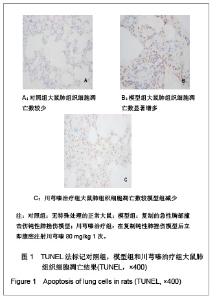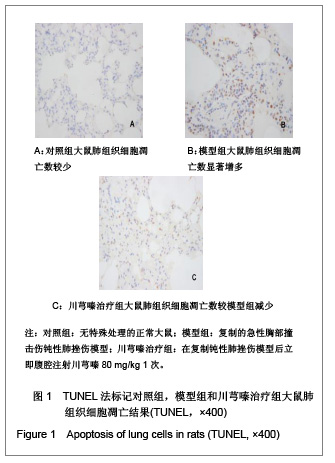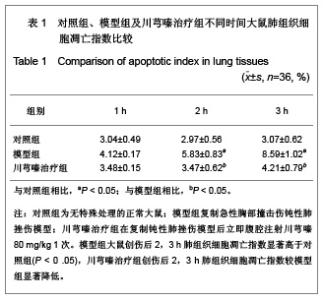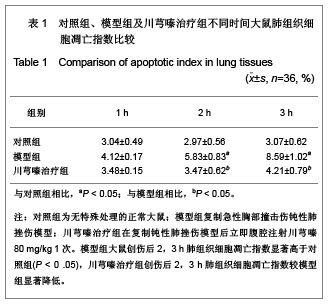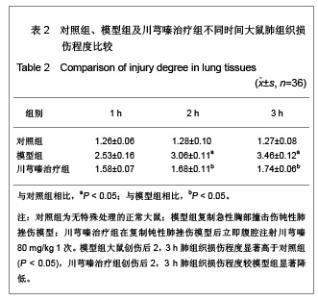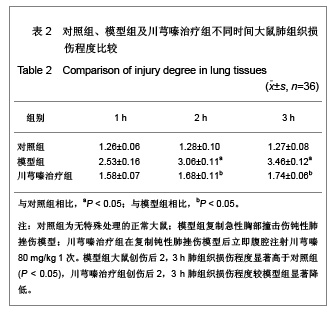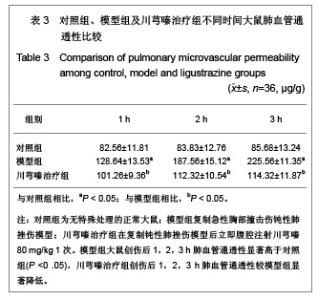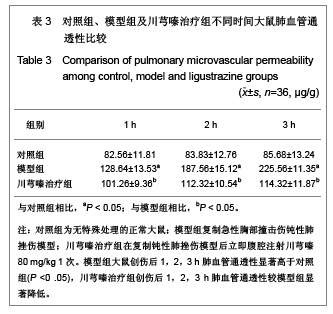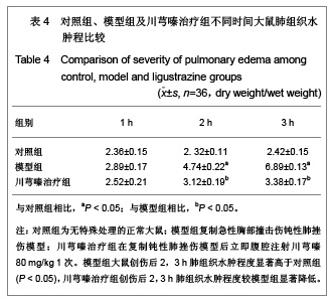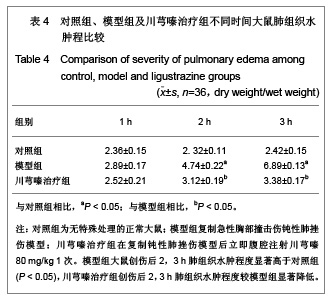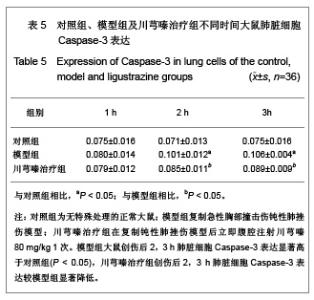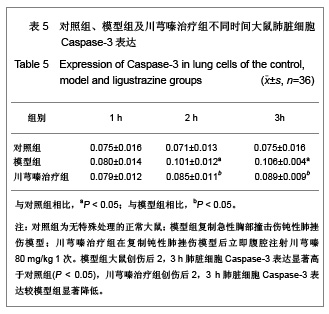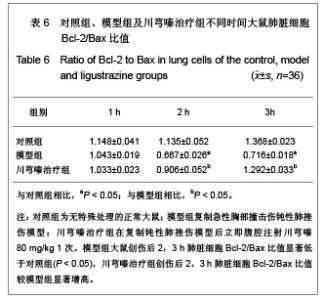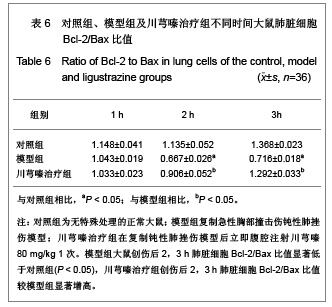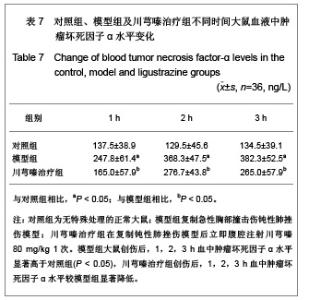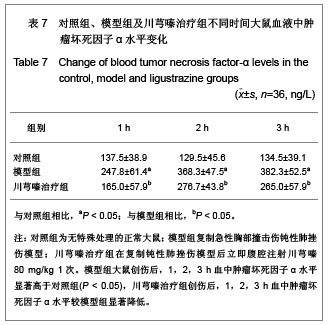| [1] Gebhard F,Kelbel MW,Strecker W,et al.Chest trauma and its impact on the release of vasoactive mediators.Shock.1997; 7(5):313-317[2] Ziegler DW, Agarwal NN. The morbidity and mortality of rib fractures. J Trauma. 1994; 37(6):975-979.[3] Cheng XC, Liu XY, Xu WF, et al. Ligustrazine derivatives. Part 3: Design, synthesis and evaluation of novel acylpiperazinyl derivatives as potential cerebrocardiac vascular agents. Bioorg Med Chem.2009; 17(8): 3 018-3 024.[4] Feng L, Ke N, Cheng F,et al. The Protective Mechanism of ligustrazine Against Renal Ischemia/Reperfusion Injury. J Surg Res.2009;166(2):298-305.[5] Raghavendran K,Davidson BA,Helinski JD,et al. A rat model for isolated bilateral lung contusion from blunt chest trauma. Anesth Analg.2005; 101(5):1482-1489.[6] Jernigan TW,Croce MA,Fabian TC. Apoptosis and necrosis in the development of acute lung injury after hemorrhagic shock. Am Surg.2004;70(12):1094-1098.[7] Pan TL, Wang PW, Leu YL, et al. Inhibitory effects of Scutellaria baicalensis extract on hepatic stellate cells through inducing G2/M cell cycle arrest and activating ERK-dependent apoptosis via Bax and caspase pathway. Journal of Ethnopharmacology. 2012; 139(3): 829-837[8] Mir Snober Shabnam, Radhika Srinivasan, Anjlina Wali, et al. Expression of p53 protein and the apoptotic regulatory molecules Bcl-2, Bcl-2-XL, and Bax in locally advanced squamous cell carcinoma of the lung. Lung Cancer. 2004; 45(2):181-188.[9] Yu J, Eto M, Akishita M, et al. A selective estrogen receptor modulator inhibits TNF-α-induced apoptosis by activating ERK1/2 signaling pathway in vascular endothelial cells. Vascular Pharmacology. 2009;51(1):21-28.[10] Morse D, Lin L, Choi AMK, Heme oxygenase-1, a critical arbitrator of cell death pathways in lung injury and disease. Free Radical Biology and Medicine.2009; 47(1):1-12.[11] Zhang ZH, Yu SZ, Wang ZT, et al. Scavenging effects of tetramethylpyrazine on active oxygen free Radicals. Acta Pharmacologica Sinica.1994; 15(3): 229-231.[12] Moon DO, Kim MO, Kang SH, et al.Sulforaphane suppresses TNF-α-mediated activation of NF-κB and induces apoptosis through activation of reactive oxygen species-dependent caspase-3. Cancer Letters.2009;274(1): 132-142. |
